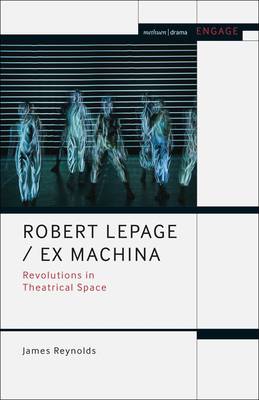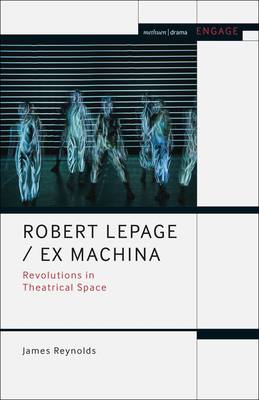
Je cadeautjes zeker op tijd in huis hebben voor de feestdagen? Kom langs in onze winkels en vind het perfecte geschenk!
- Afhalen na 1 uur in een winkel met voorraad
- Gratis thuislevering in België vanaf € 30
- Ruim aanbod met 7 miljoen producten
Je cadeautjes zeker op tijd in huis hebben voor de feestdagen? Kom langs in onze winkels en vind het perfecte geschenk!
- Afhalen na 1 uur in een winkel met voorraad
- Gratis thuislevering in België vanaf € 30
- Ruim aanbod met 7 miljoen producten
Zoeken
€ 72,95
+ 145 punten
Uitvoering
Omschrijving
Robert Lepage and Ex Machina's theatricality is inter-disciplinary and inter-cultural, and, inevitably, characterised by intense hybridity. These complex features - while the source of an internationally celebrated theatrical innovation, and considerable pleasure for audiences - have nevertheless also prompted notable criticism. Robert Lepage / Ex Machina: Revolutions in Theatrical Space reads against the grain of criticism, providing readers with a fresh, practice-based and critical perspective by arguing that these innovative aesthetic practices operate simultaneously as positive cultural principles. Drawing directly on case studies of process and a wide range of productions, and building from in-depth interviews, this book intertwines theoretical and practical concerns, weighing them in balance, and, in doing so, produces for the reader a new critical perspective on Robert Lepage and Ex Machina.
Through the course of his analysis, James Reynolds illustrates that underpinning the inter-disciplinary eclecticism of Ex Machina's practice is a profound engagement with social, cultural and political difference. Running through the work is a drive to create performances built around a principle of contradiction, through which audiences can apprehend difference in its myriad, infinite forms. Consequently, Robert Lepage / Ex Machina explores this embracing of difference in all its depth and complexity, opening a key way for readers to develop both their practical and theoretical appreciation of this practice. At the same time, the discourse around this vital, forward-looking practice is rebooted, not only by re-thinking its contribution to the vocabulary of drama and theatre, but also through revealing and assessing the critical discourse it initiates through performance.
Through the course of his analysis, James Reynolds illustrates that underpinning the inter-disciplinary eclecticism of Ex Machina's practice is a profound engagement with social, cultural and political difference. Running through the work is a drive to create performances built around a principle of contradiction, through which audiences can apprehend difference in its myriad, infinite forms. Consequently, Robert Lepage / Ex Machina explores this embracing of difference in all its depth and complexity, opening a key way for readers to develop both their practical and theoretical appreciation of this practice. At the same time, the discourse around this vital, forward-looking practice is rebooted, not only by re-thinking its contribution to the vocabulary of drama and theatre, but also through revealing and assessing the critical discourse it initiates through performance.
Specificaties
Betrokkenen
- Auteur(s):
- Uitgeverij:
Inhoud
- Aantal bladzijden:
- 256
- Taal:
- Engels
- Reeks:
Eigenschappen
- Productcode (EAN):
- 9781474276085
- Verschijningsdatum:
- 28/01/2021
- Uitvoering:
- Paperback
- Formaat:
- Trade paperback (VS)
- Afmetingen:
- 140 mm x 216 mm
- Gewicht:
- 294 g

Alleen bij Standaard Boekhandel
+ 145 punten op je klantenkaart van Standaard Boekhandel
Beoordelingen
We publiceren alleen reviews die voldoen aan de voorwaarden voor reviews. Bekijk onze voorwaarden voor reviews.









